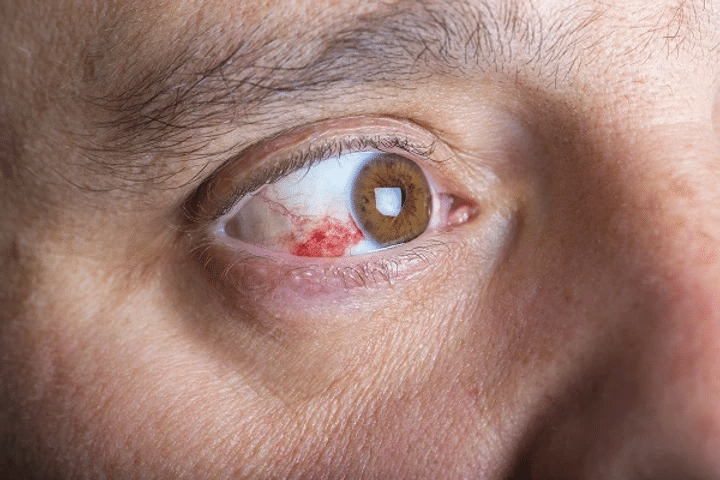Why is there a white spot on my eye?
If you can see a white spot on your eye, it might be a corneal ulcer. The cornea allows light to enter the eye just like a window while tears protect it from fungi, viruses, and bacteria. A corneal ulcer forms on the cornea in the form of a white spot which is usually caused by an infection.

What are the causes of corneal ulcers?
Infection is the main cause of these ulcers as well as:
- Having a dry eye
- An inflammatory disorder
- Vitamin A deficiency
- Using contact lenses that haven’t been sterilised
- An eye injury
Other infections include:
1. Acanthamoeba Keratitis – an amoebic infection which can cause blindness, although this is quite rare.
2. Fungal Keratitis – is another infection which people with weak immune systems can develop. This can also happen if you’ve sustained an injury to the cornea which involved plant material.
3. Herpes Simplex Keratitis – can also be a cause of corneal ulcers. It’s a viral infection that creates sores or lesions in the eye. Stress, a weak immune system or long exposure to the sun can trigger this condition.
Wearing soft or disposable contact lenses that are past their “use by” date or for long periods of time can also cause corneal ulcers.
Symptoms of corneal ulcers
These are some of the symptoms of corneal ulcers:
- Watery eyes
- Red or pink eyes
- Itchy eyes
- Discharge from the eyes like pus
- Stinging or burning feeling in the eyes
- Being sensitive to light
If your eyes are inflamed, sore, watery or you feel there is a foreign body in them, this could be a corneal ulcer.
You might also experience blurred vision, a white spot on your cornea or swollen eyelids.
Get treatment straight away if you have any of these symptoms. Even if you can’t actually see the ulcer, you will certainly be able to feel the symptoms relating to a corneal ulcer.

Diagnosis and treatment of a corneal ulcer
An optometrist will be able to diagnose a corneal ulcer by using a fluorescein eye stain. Orange dye is transferred into your eye via a thin piece of blotting paper.
A microscope is then used to look into the eye to see if there is any damage to the cornea. Any damage shows up green when the ultra-violet light is shone into the eye.
Treatment for a corneal ulcer is antifungal, antiviral or antibacterial eye drops. You might be asked to stop using makeup, wearing contact lenses, touching your eye or taking other medication.
Other causes for a white spot on the eyeball
There are a few other conditions that may cause a white spot either on or around your eye or eyelid.
Click on each of these articles for more information:
- White dot in the middle of the pupil
- You notice a white ring around the iris of your eye
- White dot under eye (a bump on your eyelid)
If you are worried about the health of your eyes or your vision, it’s important to seek help from your local optometrist who will be able to diagnose the issue and advise you on the best course of treatment.
Related articles




